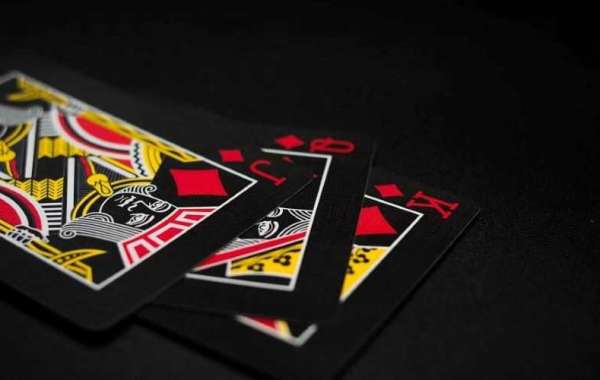Modular construction is gaining popularity worldwide, and Dubai is no exception. Known for its rapid development and iconic skyline, Dubai has embraced modular construction as an efficient and sustainable method of building.
Dubai-based model makers are playing a significant role in shaping the future of this construction approach. Through the use of advanced technologies, precise models, and innovative designs, they are influencing how modular construction is evolving. In this article, we’ll explore how Dubai-based model makers are contributing to the modular construction industry.
1. Enhancing Visualization Through Precise Models
One of the key ways Dubai-based model makers are influencing modular construction is by enhancing project visualization. Modular construction involves prefabricated units, which are assembled on-site. Accurate models help construction teams and developers visualize how these units fit together.
By creating detailed models, Dubai-based model makers provide a clear representation of how the final structure will look and function. This helps in identifying potential design flaws and ensures smooth execution.
With advanced 3D printing and CAD (computer-aided design) software, model makers can replicate each modular unit precisely. This level of detail is crucial in large-scale projects where even minor errors can lead to costly delays. Through precise modeling, Dubai’s modular construction projects are completed with greater accuracy and efficiency.
2. Supporting Sustainable Construction Practices
Sustainability is a key concern in Dubai’s rapidly expanding construction sector. Modular construction itself is often considered more eco-friendly than traditional building methods due to reduced waste and faster construction times.
Dubai-based model makers are further supporting these sustainable practices by incorporating eco-friendly materials into their models. Recycled plastics, biodegradable foam, and sustainable wood are being used to create models that reflect the city’s commitment to green construction.
In addition, model making Dubai help modular construction teams optimize designs for energy efficiency and resource conservation. By visualizing how modular units are assembled, they can identify areas where sustainable materials and energy-saving technologies can be implemented. This collaborative approach contributes to Dubai’s larger goal of becoming a sustainable city.
3. Facilitating Efficient Construction Planning
Modular construction is known for its speed, but it requires meticulous planning to be successful. Dubai-based model makers play a critical role in ensuring efficient planning by creating models that reflect every aspect of the construction process. These models serve as blueprints for prefabrication, guiding manufacturers in the creation of modular units.
By using models, construction teams can plan the logistics of transporting and assembling modular components. Model makers also work with architects and engineers to ensure that all units fit together seamlessly, reducing the risk of errors during the building phase. This efficient planning allows modular construction projects in Dubai to be completed on time and within budget.
4. Customizing Designs for Complex Modular Projects
Dubai’s skyline is filled with unique and innovative architectural designs, and modular construction is being used for increasingly complex projects.
Dubai-based model makers are helping modular construction teams adapt to these challenges by creating customized models for non-traditional modular structures. Unlike simple, rectangular units, these projects may involve curved facades, irregular shapes, or multi-functional spaces.
Model makers use advanced tools like 3D printing, laser cutting, and CNC machines to create highly detailed and customized models. These models allow construction teams to visualize how different modular components fit together in unconventional ways, making it possible to create complex designs using modular methods.
5. Reducing Risk Through Prototyping and Iteration
In modular construction, where prefabrication occurs off-site, there is less room for error once assembly begins. Dubai-based model makers help mitigate risks by creating prototypes and testing different iterations of the design. By prototyping, they can identify potential issues in the modular units before full-scale production begins.
For example, a model may reveal that certain components do not align properly or that adjustments need to be made to improve structural integrity. This iterative process ensures that any problems are resolved before the actual modular units are fabricated, reducing the risk of costly errors during construction.
6. Promoting Digital Integration and Smart Technologies
The construction industry is becoming increasingly digital, and Dubai-based model makers are at the forefront of this shift. They are integrating digital tools such as Building Information Modeling (BIM) and virtual reality (VR) into the modular construction process. By using BIM, model makers can create digital twins of modular units, allowing construction teams to simulate the assembly process in a virtual environment.
This digital integration helps modular construction teams plan more effectively and make data-driven decisions. VR models allow stakeholders to walk through the building before it is constructed, offering a real-time view of the space. These digital tools are revolutionizing the modular construction industry by improving communication, collaboration, and project management.
7. Influencing the Future of Prefabrication
Dubai-based model makers are also influencing the future of prefabrication by collaborating with modular construction manufacturers. By working closely with prefabrication teams, they ensure that modular units are built to exact specifications. This collaboration improves the quality of the units and speeds up the construction process.
As Dubai’s demand for modular construction grows, model makers are driving innovation in the prefabrication process. They are helping manufacturers optimize production lines, reduce waste, and improve material efficiency. This partnership is essential in advancing modular construction technologies and meeting the city’s construction needs.
Conclusion
Dubai-based model makers are playing a pivotal role in shaping the future of modular construction. Through precise modeling, sustainable practices, efficient planning, and digital integration, they are helping modular construction teams create faster, more accurate, and eco-friendly buildings.
Their expertise in creating customized designs for complex projects and reducing risk through prototyping ensures that modular construction in Dubai remains at the cutting edge of innovation. As the demand for modular construction continues to rise, model makers will remain key players in the development of this dynamic industry.








